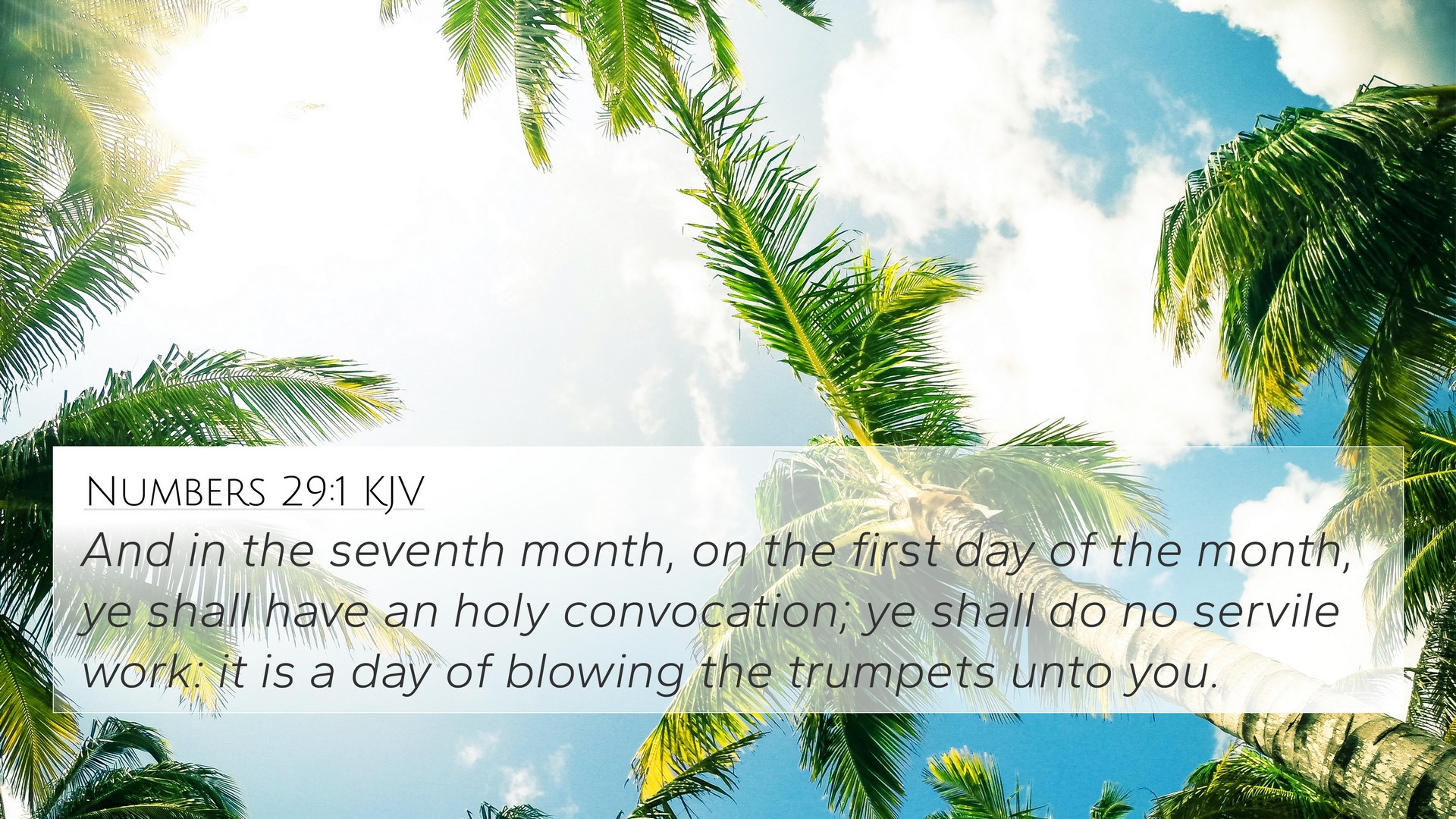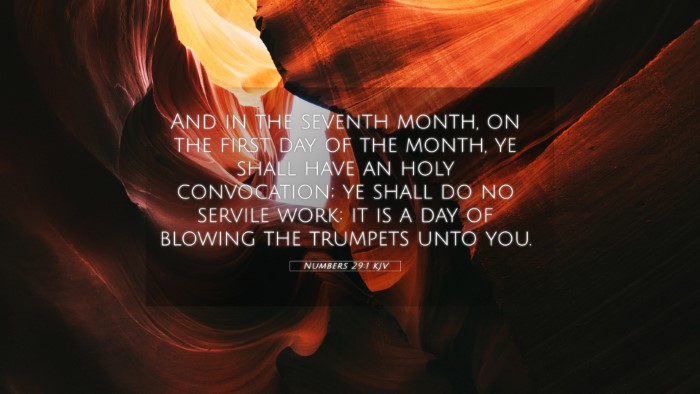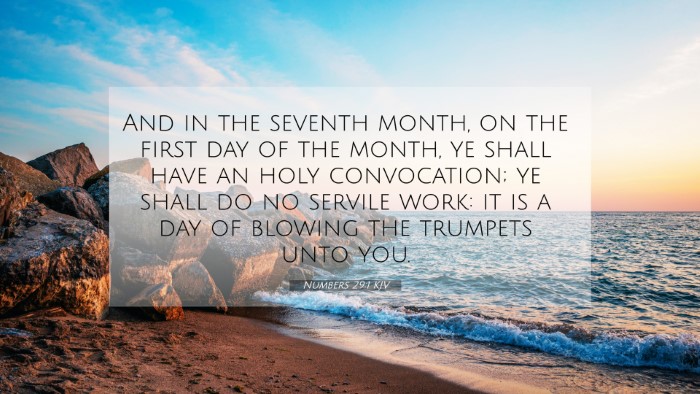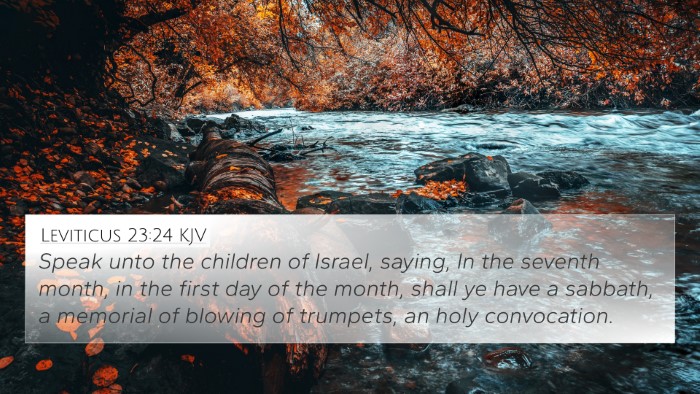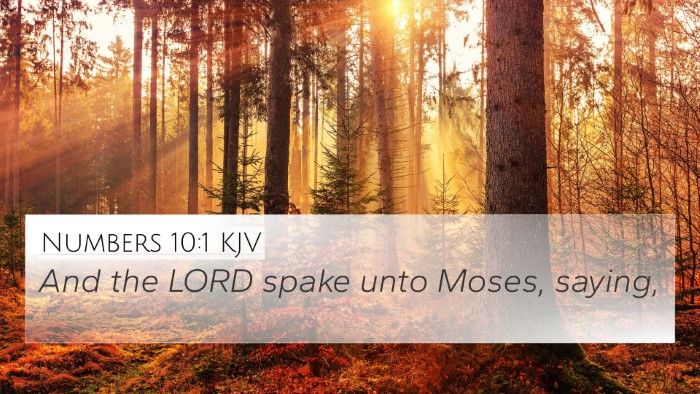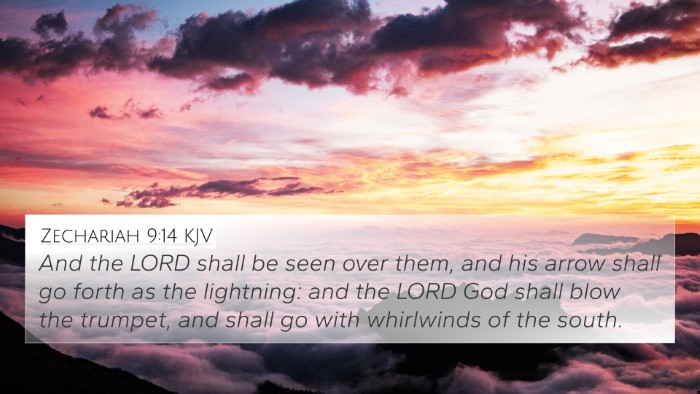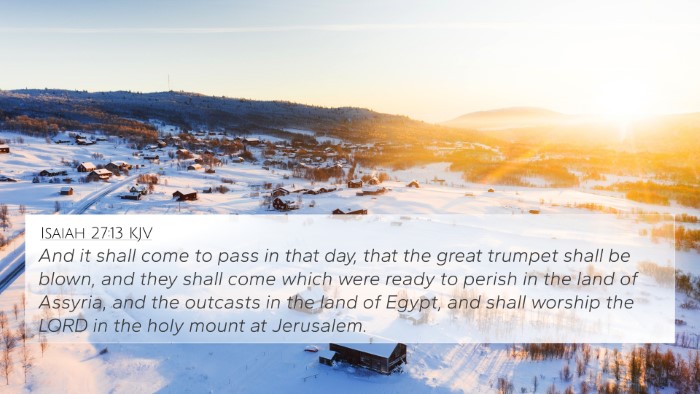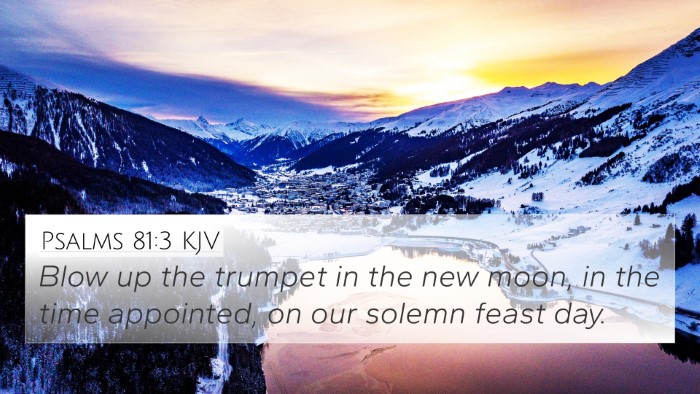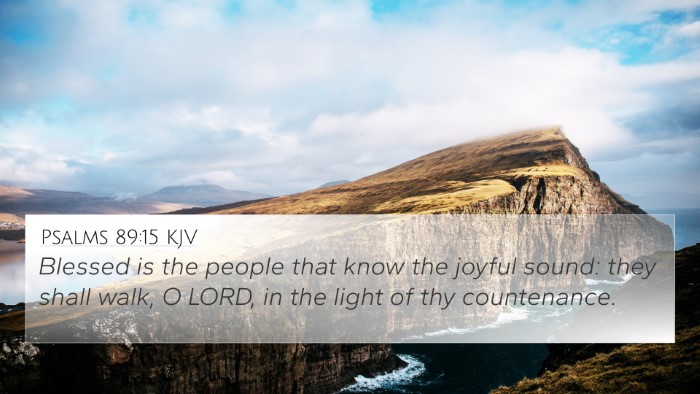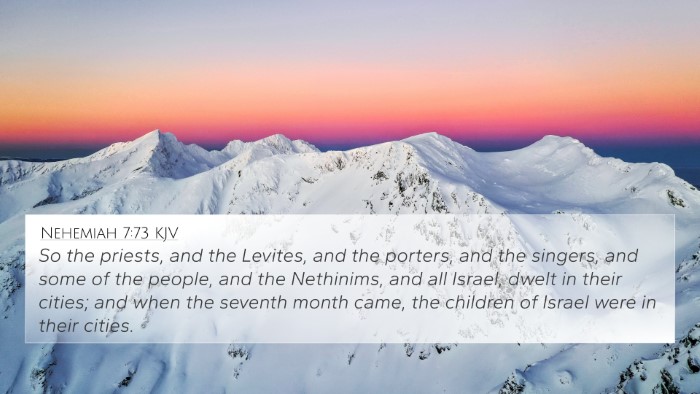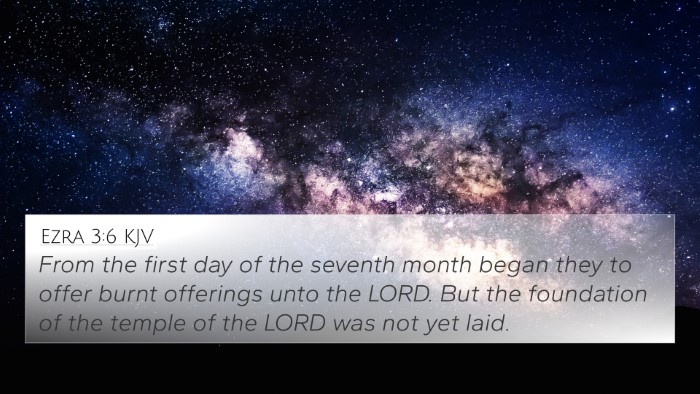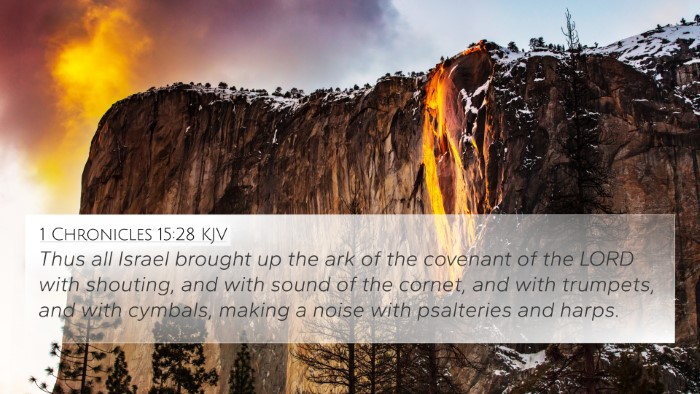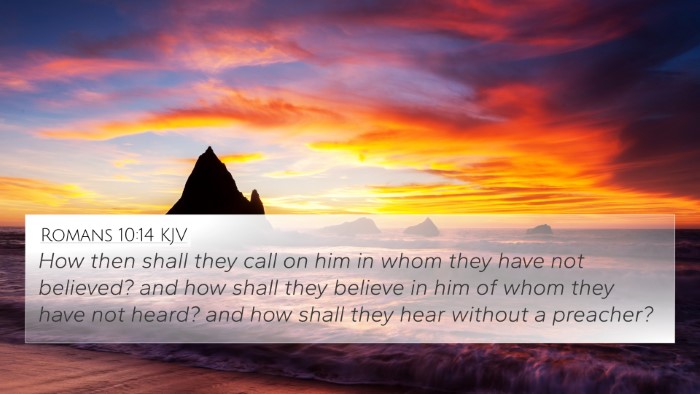Understanding Numbers 29:1
Numbers 29:1 states:
"And in the seventh month, on the first day of the month, ye shall have an holy convocation; ye shall do no servile work: it is a day of blowing the trumpets unto you."
Overview and Context
The book of Numbers outlines the journey of the Israelites in the wilderness and their preparations for entering the Promised Land. Numbers 29 maintains a focus on the various feasts ordained by God, each reflecting a unique aspect of Israel's relationship with Him.
Meaning and Interpretation
This verse highlights the celebration of the Feast of Trumpets, a day marked by rest and divine communication through sounds, symbolized by the blowing of trumpets. Public domain commentaries provide multiple layers of interpretation:
- Matthew Henry: Emphasizes the significance of rest and holy celebration. The blowing of the trumpets acts as a call to worship and a reminder of God's imminent presence.
- Albert Barnes: Notes that this “holy convocation” marked the beginning of a month dedicated to trumpets, celebrating God's sovereignty and calling people back to Him.
- Adam Clarke: Points out the prophetic nature of the trumpets, linking the sound to judgment, heralding new beginnings, and foreshadowing the coming of the Messiah.
Thematic Connections
Understanding Numbers 29:1 can be enhanced through thematic Bible verse connections. Here are some key cross-references that relate to the themes in this verse:
- Leviticus 23:24: “Speak unto the children of Israel, saying, In the seventh month, in the first day of the month, shall ye have a sabbath, a memorial of blowing of trumpets, a holy convocation.”
- Psalms 81:3: “Blow up the trumpet in the new moon, in the time appointed, on our solemn feast day.”
- Matthew 24:31: “And he shall send his angels with a great sound of a trumpet, and they shall gather together his elect from the four winds, from one end of heaven to the other.”
- 1 Thessalonians 4:16: “For the Lord himself shall descend from heaven with a shout, with the voice of the archangel, and with the trump of God: and the dead in Christ shall rise first.”
- Revelation 8:6: “And the seven angels which had the seven trumpets prepared themselves to sound.”
- Isaiah 58:1: “Cry aloud, spare not, lift up thy voice like a trumpet, and shew my people their transgression, and the house of Jacob their sins.”
- Joel 2:1: “Blow ye the trumpet in Zion, and sound an alarm in my holy mountain: let all the inhabitants of the land tremble: for the day of the Lord cometh, for it is nigh at hand.”
Cross-Referencing in Biblical Texts
When engaging in cross-referencing Biblical texts, it is beneficial to utilize tools for Bible cross-referencing, such as a Bible concordance or cross-reference guide. Understanding connections across scriptures allows for deeper insights.
How to Use Cross-References Effectively
In engaging with inter-Biblical dialogue, consider the following methods:
- Identify themes of celebration, repentance, and divine communication.
- Look for patterns in how trumpets are used throughout the scripture.
- Analyze the importance of designated holy times in the context of God's instructions.
Concluding Thoughts
Numbers 29:1 serves as a potent reminder of the importance of setting aside designated times for worship and reflection. The themes present resonate throughout the scripture, encouraging believers to focus on their relationship with God while drawing parallels to different Biblical contexts.
For anyone seeking an understanding of Bible verse interpretations, the connections in Numbers 29:1 serve as a wonderful study topic that yields rich insights from comparative Bible verse analysis.
